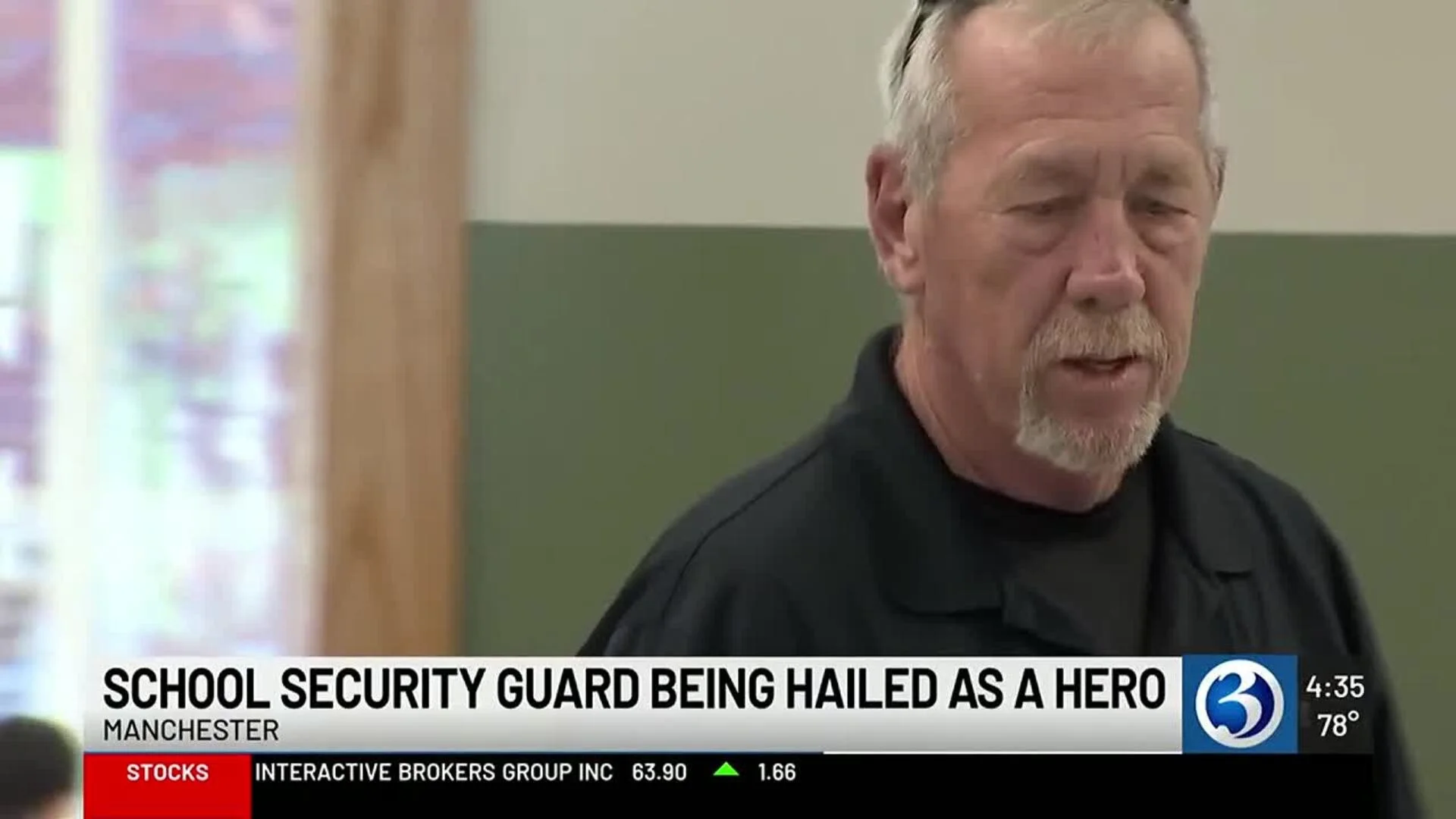Hero Among the Hallways: How One School Security Guard Saved Three Lives in 18 Months
Source: wsfb
Manchester, CT – September 2025
In the bustling cafeteria of The Bennet Academy in Manchester, Connecticut, dozens of students fill their lunch trays, friendships buzz, and daily school life hums along. But over the last 18 months, what seemed like a routine lunchtime turned into a series of life-or-death moments — and the person who answered wasn’t a nurse, but a security guard. https://www.wfsb.com+1
The Incidents: Quick Reactions, Real Lives
Over three separate occasions in roughly a year-and-a-half, the academy’s lead security guard, Leon Haberski, intervened when students began choking on food in the lunchroom. In each case, he performed the Heimlich manoeuvre (abdominal thrusts) and swiftly aided the student before further harm occurred. https://www.wfsb.com+1
First event: A student had stopped breathing after swallowing a large bite. Leon delivered multiple abdominal thrusts; the obstructing food was dislodged. CT Insider+1
Second event: A quicker rescue when the student’s symptoms were recognized sooner. Leon’s training allowed him to act without hesitation. https://www.wfsb.com+1
Third event: Leon noticed subtle signs — a young boy at lunch with an abnormal expression. He intervened before complete airway blockage. CT Insider+1
In acknowledgement of his actions, Leon was honored by the American Red Cross with the “Certificate of Extraordinary Personal Action” lifesaving award. https://www.wfsb.com+1
Why This Matters
Preparedness pays off: Leon didn’t wait for a nurse or paramedics. His training made the difference when mere minutes could have meant tragedy.
School environments are always dynamic: While much focus is placed on security and violence prevention, medical emergencies—like choking—are equally urgent. The school lunchroom, with 200+ students in waves, is a high-risk setting according to Leon. CT Insider+1
Visible role of security beyond deterrence: Leon’s primary role might be guarding entrances and hallways, but his actions show how multifaceted that job is—he’s one form of first-responder, educator, and stabilizer.
Value of everyday acts of vigilance: Recognizing the subtle signs — a face turning purple, a student unable to speak — are as lifesaving as any training manual.
Encouragement for broader training: Leon and his colleagues use their story to advocate for CPR/first-aid/Heimlich training for all school staff (and beyond). https://www.wfsb.com
What Schools and Security Teams Can Learn
Ensure regular first-aid and choking rescue training for all staff, not just medical personnel.
Include lunchroom scenarios in drills — crowded, fast-moving, distracting environments.
Encourage observant culture: staff and security should be attuned to students not eating properly, showing signs of distress, or exhibiting unusual posture/facial color.
Foster collaboration with school nurses, cafeteria staff, and security so each role is aware of protocols when seconds count.
Celebrate and spotlight proactive acts — reinforcing that guards, teachers, janitors, cafeteria workers all play roles in safety and care.
Closing Thoughts
In one way, Leon Haberski didn’t do anything extraordinary — he simply reacted, as he told reporters: “the training works.” CT Insider+1 But in another, his actions were profoundly extraordinary: three young lives saved, thanks to readiness, acuity, and swift action.
In a school setting where learning, growth, and safety are intertwined, his story reminds us: Safety isn’t only about preventing external threats—it’s about being ready for the hidden ones too.

